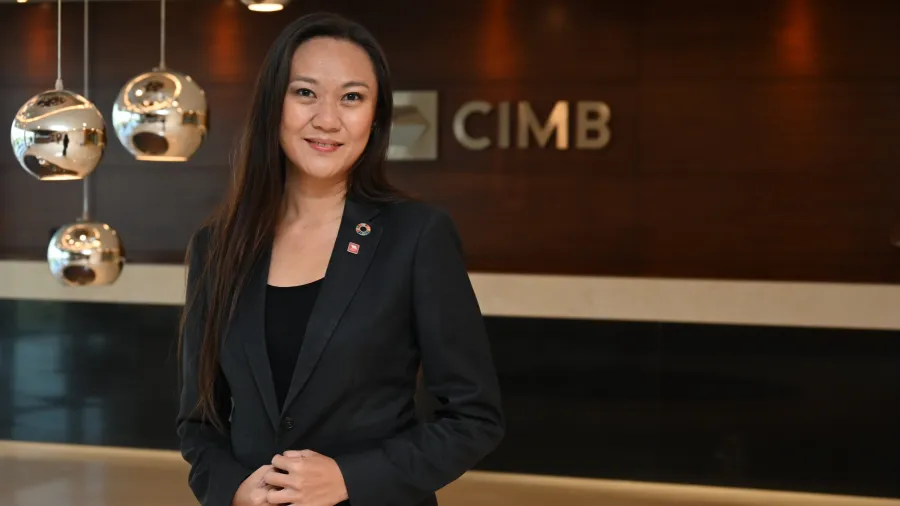
CIMB tries to rise to the challenge of net zero banking
The Malaysian lender is setting realistic decarbonisation goals.
Malaysian lender CIMB Group wants to become a steward of the transition to a net zero economy by guiding its corporate clients as they decarbonise, but many of them have not fully committed to curbing their greenhouse gas emissions.
“We speak to a lot of our clients, and for many, it’s still a ‘show me the money’ game,” Luanne Sieh, chief sustainability officer at CIMB Group, told Asian Banking & Finance. “If it's going to be an additional cost, then it’s not easy for them to push through.”
But the stars are aligning, not just from the global sustainability push but also when it comes to reducing the cost of compliance, she added. “It’s not so niche anymore, so the cost to do it is lower. Things like talent availability are also becoming less of an issue.”
CIMB was one of the first Malaysian banks to set 2030 decarbonisation targets for high-emitting sectors. Even then, Sieh noted that they have to be realistic in setting goals that they can achieve.
“Is there anything we can do to significantly move the market?” she asked. “Because when we set targets, it's not just to have a target, but it is to guide us on where to push and where to shape the market.”
Asian Banking & Finance spoke with Sieh about how CIMB, which has set targets that affect 60% of its financed emissions, is striking a balance between decarbonisation goals and market limitations.
Here’s the excerpt from her interview.
What were CIMB’s key considerations when setting its net zero targets?
Targets are ready for our coal, cement, power and palm and now it's on gas and real estate.
Things that we considered were, how important is that sector to net zero? Is it a big sector in our book? Is it important to ASEAN (Association of Southeast Asian Nations)? But also, are there data and are there pathways, because without the data and pathways, it's going to be hard to set a sector target.
So that's one of the big considerations — is there anything we can do to significantly move the market? Because when we set targets, it's not just to have a target, but it is to guide us on where to push and where to shape the market.
For example, one of the things that we have not set the targets for is consumer real estate or housing loans. That's quite a large proportion in our book. But for housing loans, the question is, can we do anything about it? And would it be a just transition? And how ready is the market to move right? Because we couldn't set something and then have the option of saying, ‘Oh, OK, if you don't buy a greenhouse, we will not finance your house.’ That is not something that we can do.
How will you cut CIMB’s oil and gas portfolio by 16% in six years?
It is tough. There is a huge task for us to get our clients to start thinking about this. The first step is really just awareness. Our customer base is all the way down to the small companies and it is probably the biggest companies that have thought about it. They're gradually getting pushed by various factors, like regulations and disclosure requirements. But all the way down to the SMEs (small and medium enterprises), they are very far away.
None of our targets is easy. I guess the one that is a little bit more straightforward is coal, which focuses on thermal coal mining. But even then, it's potentially a loss of revenue for us, although that loss of revenue comes with a reduction in transition risk.
All of these targets that we've set are global targets and aligned with a 1.5-degree Celsius scenario.
Can you elaborate on CIMB’s push to cease financing for new upstream oil fields?
It's only specific finance, like project finance. For example, if we're going to finance a general oil service company, and they're doing helicopter services or something, then, we can still do that. Unless it is for the opening of a new oil field, we will still finance them.
The world today still needs gas. Imagine if we had cut off 100% of oil and gas production today, the whole world would grind to halt. So, it is only the new fields which are approved for development after 2021, and that is set based on the IEA (International Energy Agency) 1.5C scenario. And most oil fields [survive] for a long time from that final investment date, which is our cutoff date. How we define the cutoff date to actual production is long — it takes an estimated 20 years.
What is the probability of Malaysian banks stopping financing for oil and gas?
Zero, because as I said, we all need oil and gas right now. Without a whole lot more green energy, and that comes with the grid infrastructure, the storage and all that, it will not happen in the short term.
What are CIMB’s future ESG initiatives?
We're doing a lot of things. We have this great thing called GreenBizReady. Basically, it's a free consulting, mentoring, and matchmaking service for SMEs. They don't even need to be financing clients. You just need to have a deposit account with us. And we'll offer this for free. We launched this back in 2021, and we've helped a number of SMEs to improve by helping them quantify the risks and opportunities.
More recently, we launched sustainability-linked financing for SMEs. What we've done is we've put the KPIs (key performance indicators) and sustainability performance targets on a menu with a standard set of KPIs, a standard set of science-based reduction targets.
There are two big issues why it’s very hard to do [sustainability-linked loans] for SMEs. Number one, many of them haven't even started measuring their emissions. The second thing is, if you follow the sustainability-linked loan principles, you need to have third-party verification. That is normally very expensive. It could cost a few hundred thousands to millions of ringgit or Singapore dollars to have a system.
We've simplified this for SMEs, and we've partnered with providers in Malaysia and Singapore who can do two things. Number one, we've partnered with a GHG (greenhouse gas) calculator platform that our SMEs and our clients can use to just input their raw data, like fuel consumption, and then it will calculate and give us the results. And then we see the reduction in a year, then they get a rebate.
This comes at a very low cost because we negotiated by bulk, and we only limit it to the key measurements, like GHG. It doesn't have all those full-fledged reporting platforms, like a million different indicators, which SMEs don't need. The other big thing that we've done is we managed to lower the verification costs, again, tying up with a provider to do this. We've done this now in Malaysia, and we recently launched it in Singapore.
Why is it difficult for companies to operate sustainably?
You have to think about the decision-makers. So who decides what — “OK, we're going to do this, or OK, we're not going to do that.” Or just wait and see and wait till, yeah, regulations come up and I have to do it. These are largely top management, the board.
We speak to a lot of clients, and for many, it's still a ‘show me the money’ game. So if it's going to be an additional cost, then it's not so easy to push through. There are many things that you take into account when you make a decision, and a lot of it is the money.
The good thing is that more stars are aligning, so there is greater pressure. Also, the cost of doing things is — because it's becoming more mainstream, there are economies of scale — not so niche anymore, so the cost to do it is lower. Things like talent availability are also becoming less of an issue.
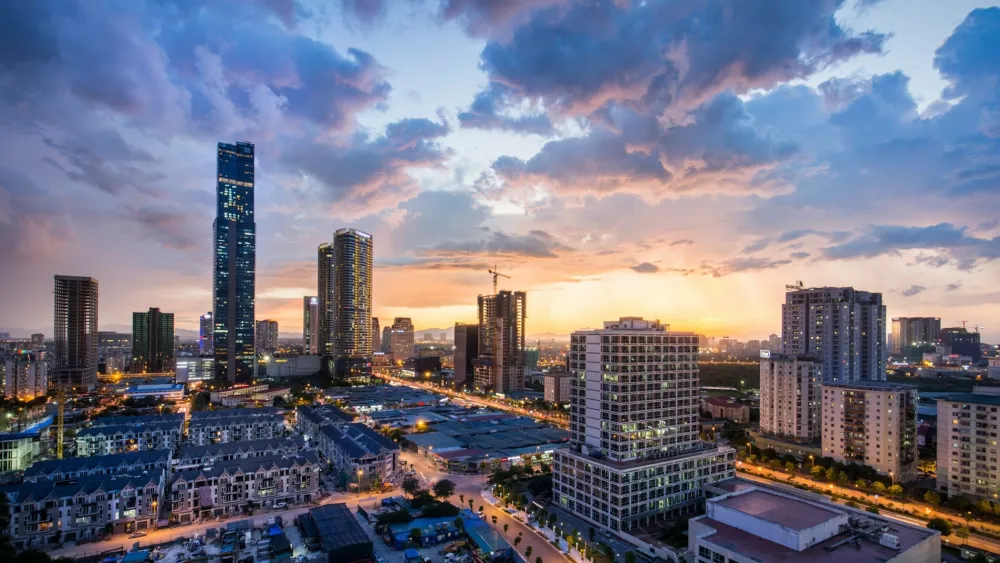


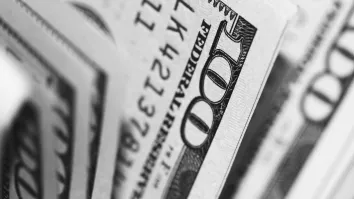
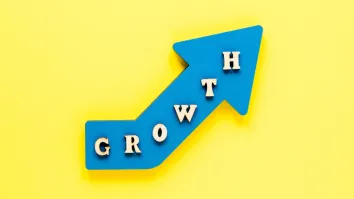
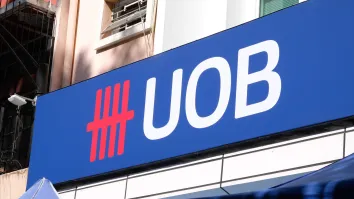













 Advertise
Advertise











